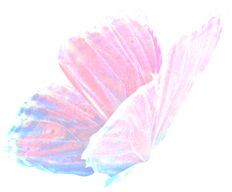Is sobriety on a spectrum, and if so, what are the parameters?
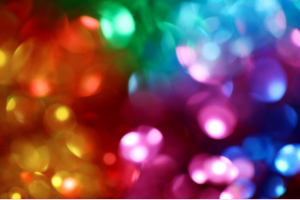
Sobriety is having a major moment right now. Well,” New Sobriety” — From bars serving $15 artisanal mocktails to people identifying as “LA-Sober,” to sober-celebrated months like “Dry January” — in 2021, sobriety is the new black.
Suppose you’re unfamiliar with the “New Sobriety” movement. It’s the radical choice to define sobriety on your terms, unlike those poor unfortunate souls who are sober as a means of survival. “New Sobriety” has morphed itself into a life form of its own creation.
Compared to the clerical definition of sobriety or “the condition of not being intoxicated,” how does “not being intoxicated” look in 2021? Is sobriety less about adhering to a strict code of abstinence and more about freeing oneself from substance addiction?
The Spectrum of Semi-Sobriety
Let’s examine some “New Sobriety” trends happening right now:
“Sober-Curious”
You don’t have to give up alcohol entirely.
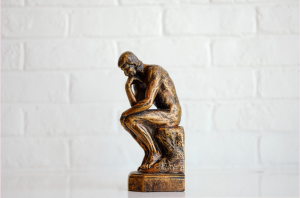
According to Ruby Warrington, author of Sober Curious: The Blissful Sleep, Greater Focus, Limitless Presence, and Deep Connection Awaiting Us All on the Other Side of Alcohol, “For many of us, getting Sober Curious begins with a simple question: Would my life be better without alcohol? To discover the answer for yourself, all that remains is to put the cork back in the bottle, open your eyes, and see.”
The Sober Curious Movement offers an easy “in” for individuals looking to refine their relationship with alcohol, question dominant drinking culture, and holistically take better care of themself. While the sober curious movement aims to be inclusive, it may not be appropriate for everyone. Let’s look at two “Sober Curious” profiles:
Profile 1: Sober Curious Sally
Sober Curious Sally questions why alcohol appears at most social outings; alcohol is always present from weddings to baby showers to funerals. Therefore she always drinks — excessively. It’s the holiday season, and Sally is drinking most days. She needs a break. Sally commits to “Dry January” and signs up for a yoga retreat. After a month, Sally finds she has so much more joy, her energy levels calibrate on a higher frequency, and her skin is clearer, so she decides only to drink red wine on the weekend if, and only if, she feels the occasion calls for it.
Profile 2: Sober Curious Jane
Sober Curious Jane is tired of drinking alcohol too, but it’s everywhere. Her sexy marketing job means she often travels to attend conferences and networking events. At these events, she attempts to drink in moderation, a two-drink maximum like the CDC recommends; Jane exceeds her drinking limit every single time and wakes up hating herself for it the following day. Committed to making a change, Jane decides to partake in “Sober October” to gear up for the slew of expected alcohol-fueled socials coming up for the holidays. On day three of “Sober October”, Jane is drinking a gross amount of alcohol again.
Both of these examples intentionally call into question the presence of alcohol in these women’s lives. Sober Curious Sally can follow Ruby Warrington’s advice: “put the cork back in the bottle, open your eyes, and see.”
Sadly, Jane cannot.
This movement encourages a sober lifestyle but assumes the privilege of choice. The choice to stop drinking. The choice to drink in moderation. Freewill.
“California-Sober” and “Sober — Lite”
You can get trippy with it.
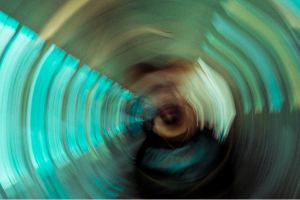
Cali-Sober or Sober-Lite is loosely defined as not really drinking alcohol. Still, smoking cannabis or eating edibles is ok and, depending on who you ask, taking psychedelics, like LSD, is fine so long as it’s not “hard drugs.” Whew! Let’s unpack that definition because I think may need to be high to make sense of it.
Cali-Sober and Sober-Lite have become mainstream terms thanks to celebrities like Demi Lovato and The Weeknd, who align themselves with these “harm-reduction” movements. Three years post near-fatal overdose, Lovato feels they are comfortable drinking and smoking marijuana in moderation. The Cali-Sober star said, “the complete abstinent method isn’t a one-size-fits-all solution for everybody.”
Agreed, Demi — a “one-size-fits-all” approach to sobriety is not realistic but would caution against picking and choosing which substances are acceptable to consume as it creates a false dichotomy between “good” and “bad” drugs. Why is meth “bad” but chocolate shrooms “good”?
It’s giving the 2000 Afroman song “Because I Got High” (refer to lyrics for additional context). Smoking weed pretty much ruins the speaker’s life. The lyrics are dark but hilariously real: “I was gonna make love to you, but then I got high.” My version goes something like this “I was gonna get sober, but then I got high.”
Now I know what you’re thinking, so let me be clear, this is not an anti-marijuana piece. When I first became “sober,” I meant Cali-sober, even though I live in New York (New York-sober is just psych meds and caffeine). I attribute a large part of my success in quitting drinking to smoking weed and micro-dosing with edibles in the wee early days of my sobriety journey.
Present-day, I no longer smoke weed or consume edibles because it was a slippery slope for my recovery. As someone prone to addictive behaviors, I started substituting my craving for alcohol with my desire for marijuana. Smoking and edibles became a crutch; before I knew it, I was smoking more than ever before.
It finally occurred to me that sobriety meant the traditional use of the word — abstaining from intoxication.
“Teetotaler”
You don’t drink or do drugs. Period.
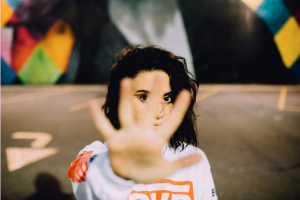
Photo by Isaiah Rustad on Unsplash
A “teetotaler” is someone who never drinks alcohol. Never uses drugs. They don’t alter their natural state of consciousness. Basically, they’re a baby.
I’m a toddler in sober years (1 year and a half). Like toddlers, I find myself learning about the world through astute observations.
I observe sober celebs and influencers like Chrissy Teigen, who may or may not be canceled; I can’t keep up, write statements like, “I’d sit there with my multiple double vodka sodas and get day drunk by myself (this is not a brag lol I was a functioning alcoholic) then buy hats I didn’t like or need at Urban Outfitters.”
Or Jessica Simpson, who received a warm reception from fans and the sober community for her raw share about addiction, stating, “There is so much stigma around the word alcoholism or the label of an alcoholic.” I agree with you, Jess. There is still shame around bearing the scarlet letter A (for Alcoholic) when Chrissy uses phrases like “basically a functioning alcoholic.”
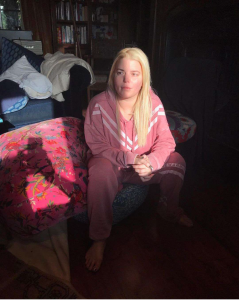

I have no scruples with the “New Sobriety” movement as it has helped so many “gray area drinkers” take inventory of their lives to determine how drinking impacts their quality of life, but…There is an opportunity for more discourse around alcoholism and alcohol-use disorder and their place on the “New Sobriety” movement spectrum.
If you liked this article and want more sober content, check out https://www.instagram.com/the.soberbutterfly/
